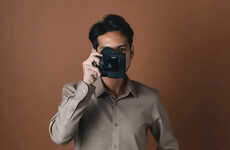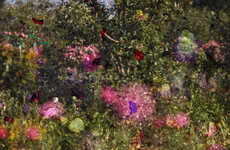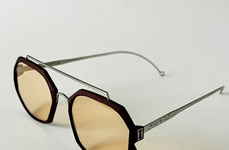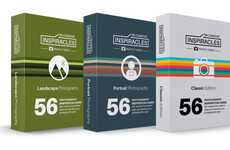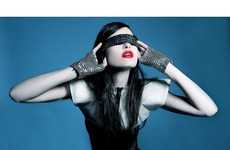
Visually Impaired Artists Find Their Vision Through the Lens
Shelby Lee Walsh — May 12, 2009 — Lifestyle
References: time
The University of California at Riverside has recently featured an exhibit on blind photographers and the result is inspirational as well as mind-boggling. The exhibit features many different photographers, all of which are visually disabled in varying degrees.
The most interesting aspect of this genre of photography may just be the process that these artists go through in order to create these rich images. Pete Eckert, the photographer of photos 5 and 6, leaves his camera on a tripod and experiments with exposure times and movement of light. Conversely, Kurt Weston, who took pictures 2 and 3, scans the faces of his muses.
It has been said that a picture is worth a thousand words, but I think these particular blind photographers' photos are worth far more.
The most interesting aspect of this genre of photography may just be the process that these artists go through in order to create these rich images. Pete Eckert, the photographer of photos 5 and 6, leaves his camera on a tripod and experiments with exposure times and movement of light. Conversely, Kurt Weston, who took pictures 2 and 3, scans the faces of his muses.
It has been said that a picture is worth a thousand words, but I think these particular blind photographers' photos are worth far more.
Trend Themes
1. Blind Photographers - Exploring the artistic potential of visually impaired individuals in photography.
2. Disruptive Techniques - Innovative approaches to photography utilizing exposure times, movement of light, and scanning of subjects.
3. Artistic Value - Recognizing the profound impact of blind photographers' work as a testament to the power of imagination and interpretation.
Industry Implications
1. Art and Photography - Integrating blind photographers into the art and photography industry revolutionizes creative perspectives.
2. Technology and Accessibility - Developing assistive technologies and tools that empower visually impaired individuals to engage in photography.
3. Inclusive Education and Therapy - Incorporating photography as a therapeutic and educational tool for visually impaired individuals, fostering self-expression and empowerment.
2.8
Score
Popularity
Activity
Freshness

